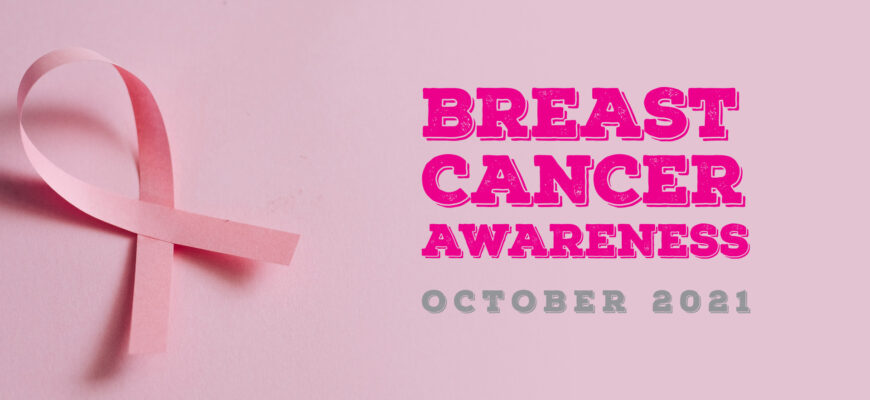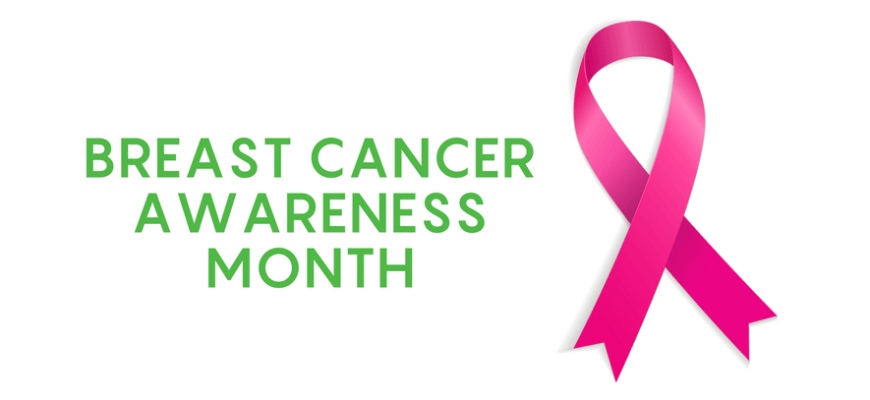Breast Cancer Awareness

Cancer is a broad term for a class of diseases characterized by abnormal cells that grow and invade healthy cells in the body. Breast cancer starts in the cells of the breast as a group of cancer cells that can then invade surrounding tissues or spread (metastasize) to other areas of the body.
Cancer begins in the cells which are the basic building blocks that make up tissue. Tissue is found in the breast and other parts of the body. Sometimes, the process of cell growth goes wrong and new cells form when the body doesn’t need them and old or damaged cells do not die as they should. When this occurs, a build-up of cells often forms a mass of tissue called a lump, growth, or tumor.
Breast cancer occurs when malignant tumors develop in the breast. These cells can spread by breaking away from the original tumor and entering blood vessels or lymph vessels, which branch into
tissues throughout the body. When cancer cells travel to other parts of the body and begin damaging other tissues and organs, the process is called metastasis.
Did you know that 1 in 8 women will be diagnosed with breast cancer in her lifetime? While you can’t usually prevent cancer, it is important to be proactive about your health. Breast cancer can be diagnosed through multiple tests, including a mammogram, ultrasound, MRI and biopsy.
For more information, contact your local hospital. Ask to speak to a social worker, patient navigator, or nurse navigator. They will be able to refer you to any local financial assistance programs for breast cancer exams or breast cancer treatment.
Signs and symptoms of breast cancer

Signs and symptoms of breast cancer can include:
- a change in size or shape
- a lump or area that feels thicker than the rest of the breast
- a change in skin texture such as puckering or dimpling (like the skin of an orange)
- redness or rash on the skin and/or around the nipple
- your nipple has become inverted (pulled in) or looks different (for example changed its position or shape)
- liquid (sometimes called discharge) that comes from the nipple without squeezing
- constant pain in your breast or your armpit
- a swelling in your armpit or around your collarbone.
Many symptoms of breast cancer, such as breast pain or a lump, may, in fact, be caused by normal breast changes or a benign (not cancer) breast condition. However, if you notice a change, it’s important to see your GP (local doctor) as soon as you can. read more →
12 Facts About Metastatic Breast Cancer

Metastatic breast cancer (also called stage IV) is breast cancer that has spread to another part of the body, most commonly the liver, brain, bones, or lungs.
- No one dies from breast cancer that remains in the breast. Metastasis occurs when cancerous cells travel to a vital organ and that is what threatens life.
- Metastasis refers to the spread of cancer to different parts of the body, typically the bones, liver, lungs and brain.
- An estimated 155,000 Americans are currently living with metastatic breast cancer (also called Stage IV breast cancer). This disease accounts for approximately 40,000 deaths annually in the U.S.
- Treatment is lifelong and focuses on the control of the disease and quality of life.
- About 6% of people are Stage IV from their initial diagnosis.
- Early detection does not guarantee a cure. Metastatic breast cancer can occur 5, 10 or 15 years after a person’s original diagnosis and successful treatment checkups and annual mammograms.
- 20% to 30% of people initially diagnosed with early-stage disease will develop metastatic breast cancer.
- Young people, as well as men, can be diagnosed.
- Like early-stage breast cancer, there are different types of metastatic breast cancer.
- Treatment choices are guided by cancer type, location and extent of metastasis in the body, previous treatments and other factors.
- It is not an automatic death sentence. Although most people will ultimately die of their disease, some will live for many years.
- There are no definitive prognostic statistics for metastatic breast cancer. Every patient and their disease is unique.


